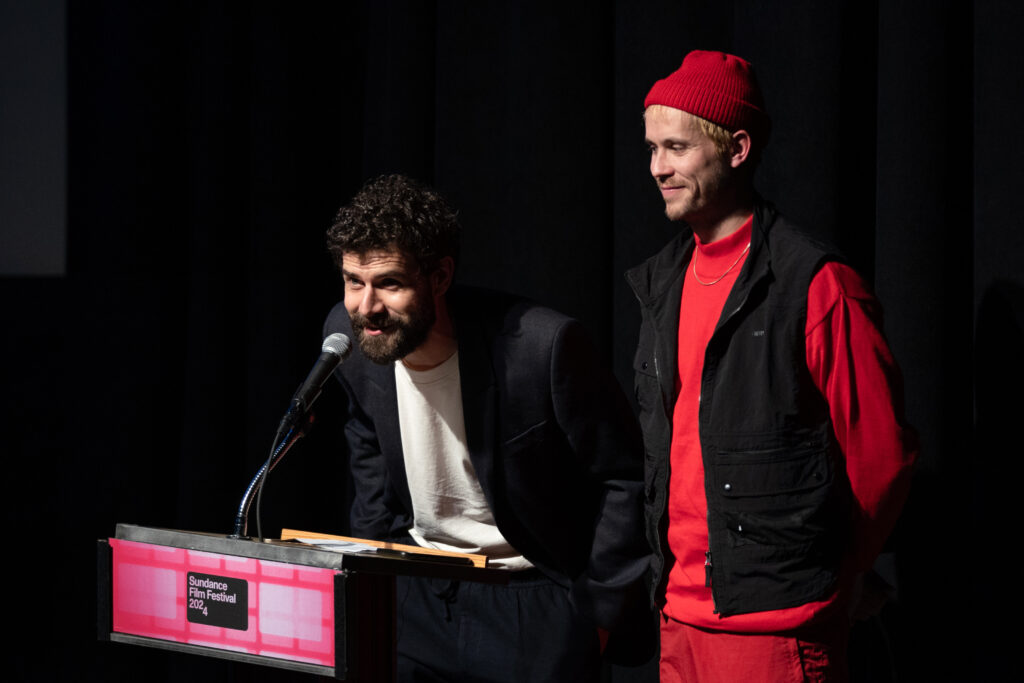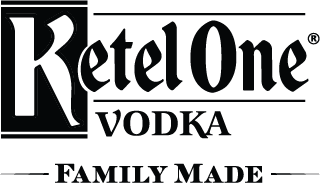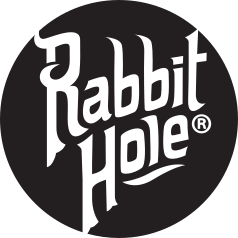PARK CITY, UTAH – JANUARY 19: (Photo by Michael Hurcomb/Shutterstock) Moritz Riesewieck and Hans Block at the premiere of “Eternal You” at Prospector Square Theatre on January 20, 2024, in Park City, Utah. (Photo by Marc Sagliocco/Shutterstock)
By Stephanie Ornelas
If you had the chance to talk to a loved one who has passed, would you take it?
Co-directors Hans Block and Moritz Riesewieck explore this concept in their groundbreaking documentary Eternal You, which premiered at the Prospector Square Theatre in Park City, Utah on January 20 in the World Cinema Documentary Competition. The emotional and somewhat controversial film examines how startups around the world are using artificial intelligence to allow users to virtually connect with their deceased loved ones as avatars.
Audience members were captivated from start to finish as they witnessed users of the technology interact with their deceased loved ones, including a mother who seemingly escapes reality to connect with her late young daughter. The scene was altogether chilling and heartbreaking.
But what really surprised the directors during the filmmaking process was that, through telling these stores, they developed a better understanding of how existential the pain can be when you lose someone close to you.
“There are a lot of situations where you urgently want this one conversation you never got to have. And there are open questions you want to ask,” says Block. “The tricky thing about this is that as soon as you start experimenting and as soon as you start chatting with it, you’re pulled into it. And there’s a big risk that you can’t stop this conversation anymore. It can become kind of addictive.”
It was 2018 when Block and Riesewieck discovered a website that said, Become virtually immortal. “Back then, it was an empty promise. It was almost a hoax. This guy was an MIT fellow, so we were interested in this company and were trying to find out more, but we learned that a lot of people from all over the world had signed up for this service and were deeply disappointed,” explains Block.
But they didn’t give up on the idea of making a documentary surrounding the technology and the users who participate. And over the next two years, they began to notice more startups offering the service.
“There was this massive progress in the development of generative AI, which we all know as ChatGPT, for example. And it was incredible how much it influenced this technology and this industry. It became much more convincing.”
For example, the film follows one startup that was able to create a realistic avatar baby, a family who communicates with their patriarch in hopes that their younger generation could talk to their grandpa, and a woman who desperately wants to connect with her late lover.
One audience member was curious how Block and Riesewieck went about choosing the startups they featured in the film, as it was a very diverse lineup.
“We really wanted to focus on the users of the technology. There were companies that were much more in the starting phase and there weren’t users yet. Plus, it was important for us to really observe the first clients getting in touch with this new technology. So, that influenced our choice of which companies to work with. We were also interested in a certain character who we find typical. After six years of researching this topic, there were certain characters in this industry we really wanted to portray.”
Throughout the film, audiences see the kinds of backlash these startups are constantly up against. After all, AI is still evolving, and the idea of using the technology to seemingly re-create a deceased loved one is both chilling and unethical to many.
But Block and Riesewieck offer a different perspective. “There are cultures in the world where talking to the dead is actually a tradition,” adds Riesewieck. “So we also should take care that we don’t have such a eurocentric or western-centric approach to all of this and call it unnatural just because we, in our society, are not used to talking to the dead in this kind of form. You can easily imagine that we will develop new forms of grieving, of mourning, and maybe also living on with the dead in the digital network.”
To see more of the magic of the 2024 Festival, click here.

































